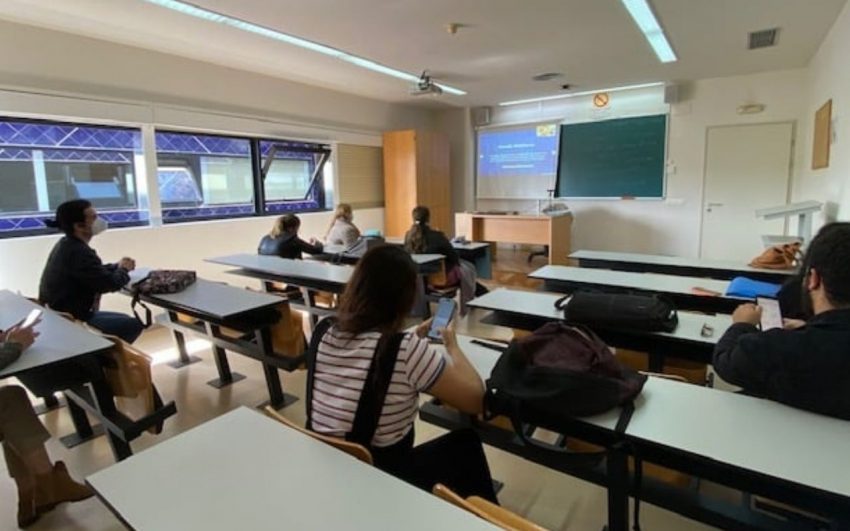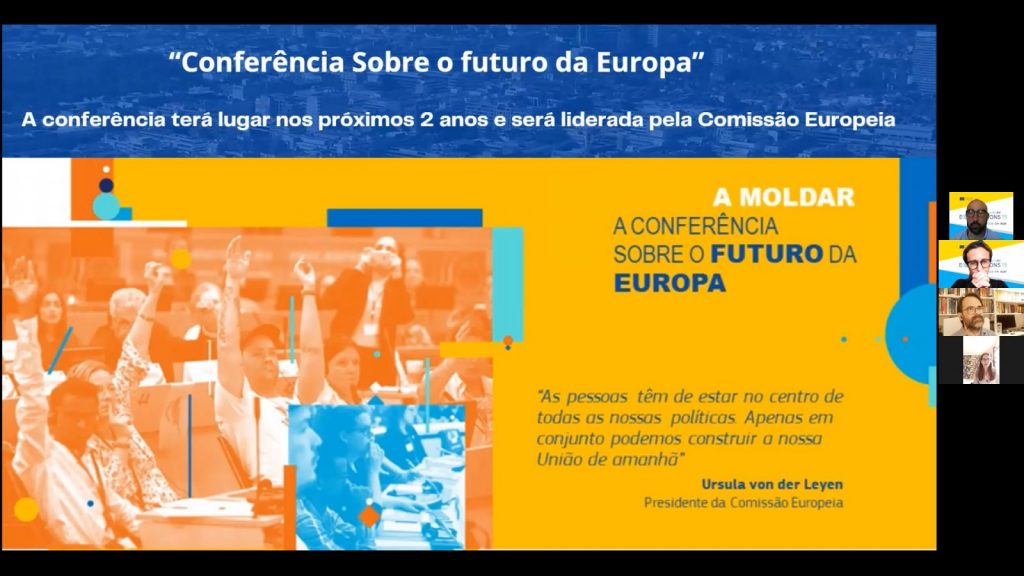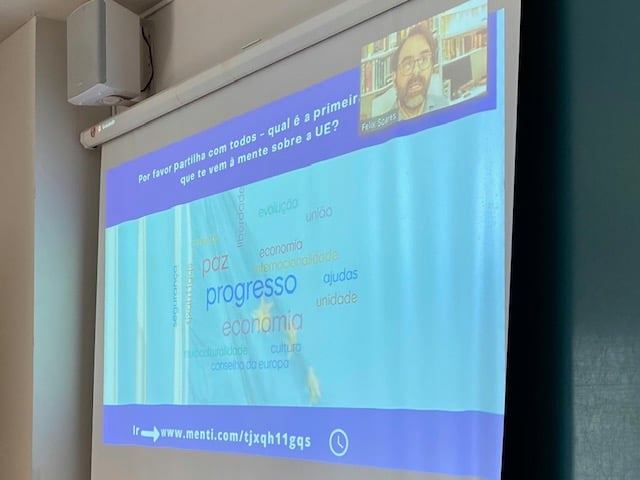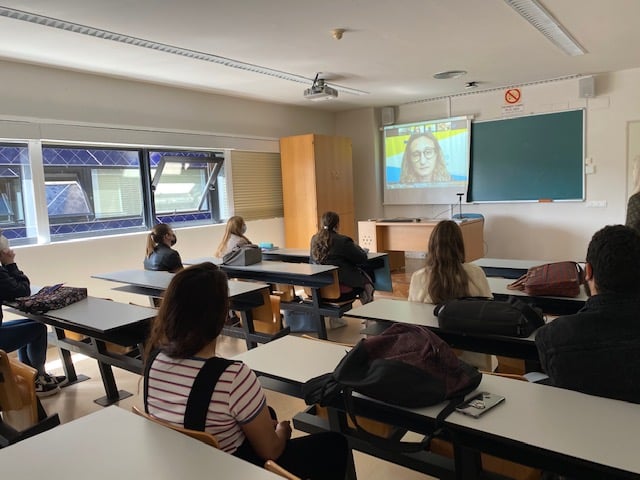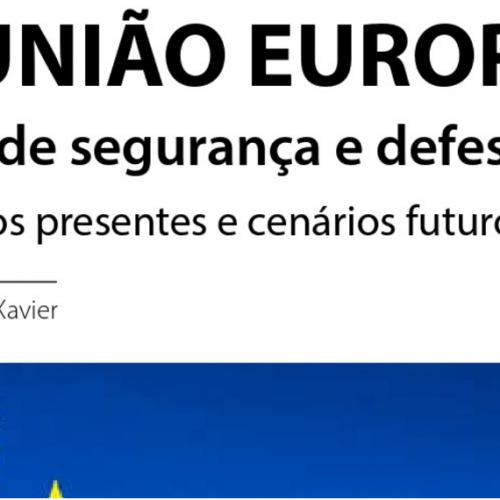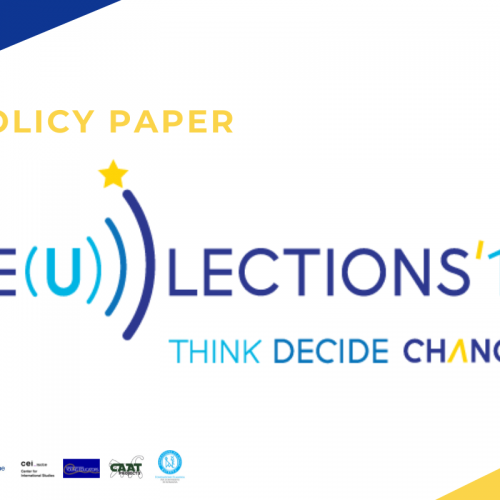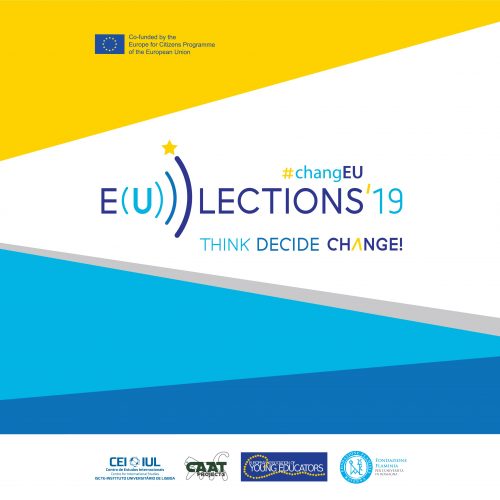On 12 April, the workshop “Five Scenarios for the Future of Europe” was promoted in collaboration with Camões I.P. and the University of Extremadura. This workshop was organized after an invitation from a Professor and a class of students of Portuguese language at the University of Extremadura. The event involved 14 citizens, including 9 participants from the city of Badajoz, Extremadura, Spain, 5 participants from the city of Lisbon, Portugal and was an extra dissemination event. This hybrid workshop was conducted in a mixed format as part of the group was gathered in person at the university classroom at Extremadura and another part was online from Portugal.
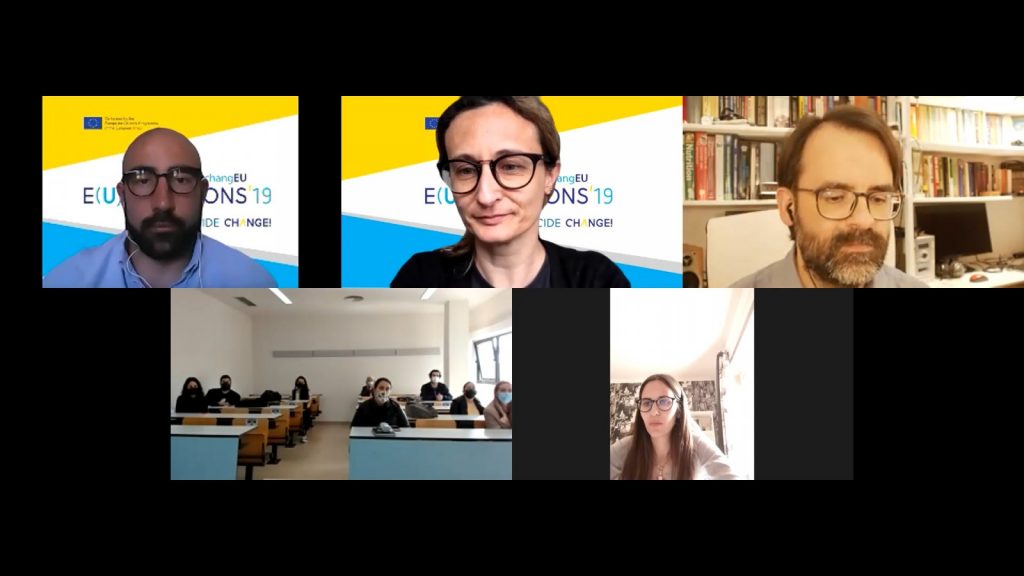
The session started with a brief project presentation by the project partners and an overview of the workshop goals. The first activity was the word cloud formed by the words students’ associate with the European Union. The word cloud included words like union, culture, peace, economy, summits, aid, progress, Council of Europe, multicultural. Following the word cloud we challenged students to test their knowledge about EU’s history through a quiz, introduced by a short video.
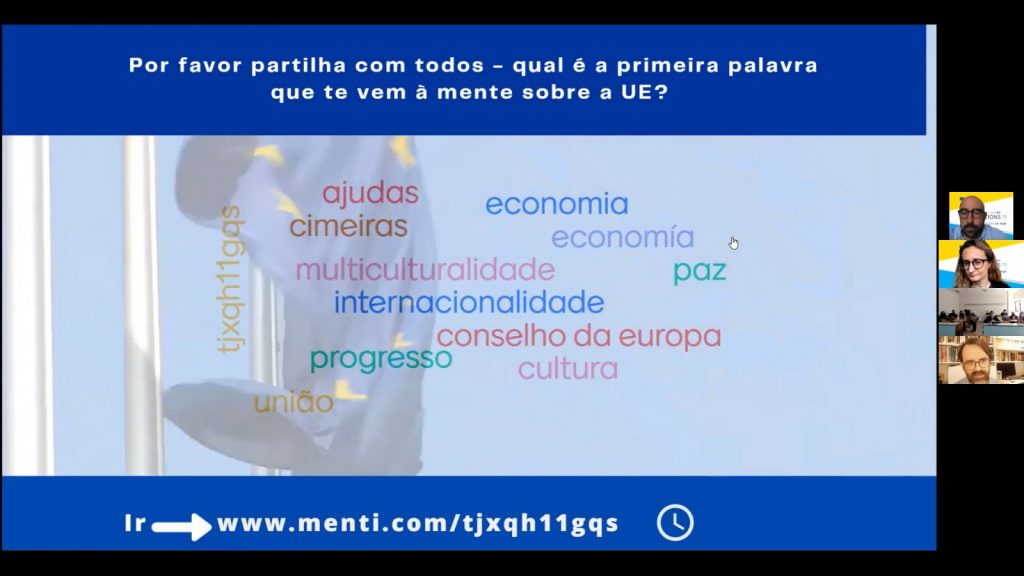
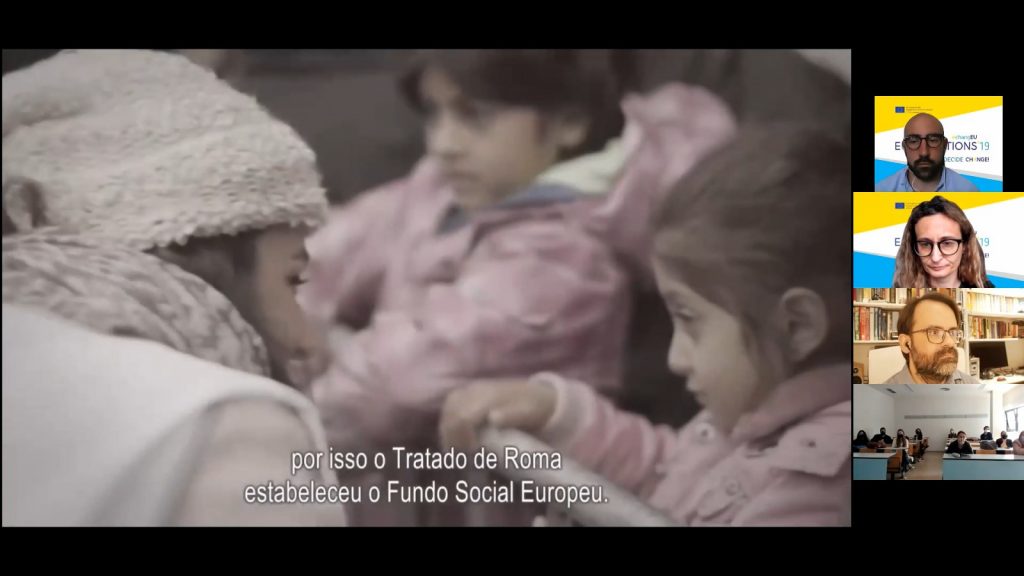
After the first two introductory activities, we moved to the key theme of the session, the present and the future of the European project. We’ve introduced the debate with a video and a short presentation with key information about the “White Paper on the Future of Europe – Five Scenarios”. Students were then invited to organize in small groups, choose one of the scenarios and debate its pros and cons, with support from the workshop facilitators.
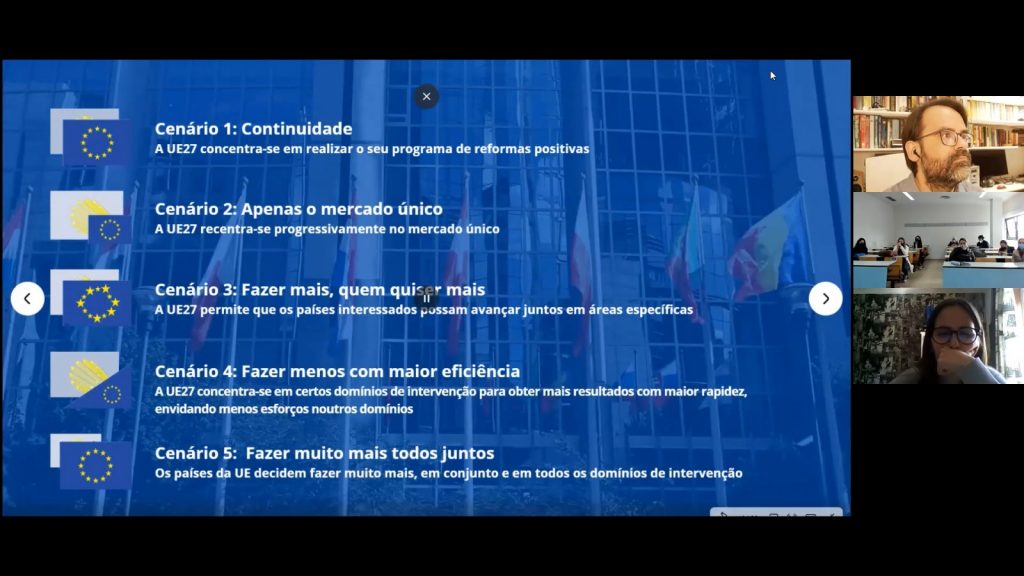
After the discussion, the groups’ representatives shared their reflection about the scenarios for future of the EU. For one of the groups, scenario 5, represents the utopia they associate with the European Union but they also consider it to be very difficult to achieve as European countries have diverse historical and cultural backgrounds and socioeconomic conditions. This is, according to the group, a great challenge to a more ambitious political union able to do more in more areas. In this case, the group considered that its important to keep the support to the social movements fighting against all forms of discrimination.
Other group of participants considered that Europe could move forward at different speeds, allowing countries that want to do more, to do it. The group also identified some risks in this option, namely the power differential between richer and poorer countries that could block those who wish to do more.
For a third group, the scenario 4, to do more in specific policy fields, would be the most interesting as it would allow the EU institutions to be more efficient in key sectors like the environment and the digital transition, promoting initiatives to reduce emissions and protect citizens’ data privacy
After the group work we’ve proposed students to individually vote on their favourite scenario for the future of the European project.
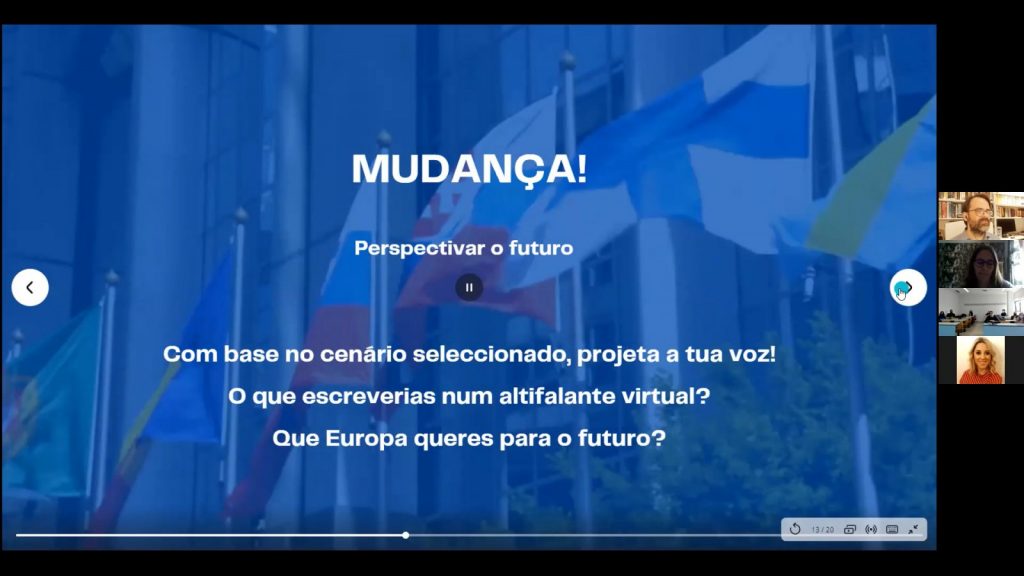
The next group of workshop activities were focused on the relationship between the EU and European citizens. Students were invited to present suggestions of ways to improve EU’s response to citizens’ needs, bring EU institutions closer to the people and also reflect on how citizens can contribute to the European project.
Participants highlighted the importance of greater economic equality in all European countries, improve citizens’ knowledge about EU’s activities, bring the EU institutions closer to citizens, promoting cultural development and mutual respect.
The third part of the session was focused on motivating participants to continue their involvement with European issues. With this purpose in mind we’ve presented two important EU initiatives, the European Citizens’ Initiative and the Conference on the Future of Europe, that aim to create spaces for European citizens to influence policies and reflect about the future of the European project. Considering the importance of an informed and active citizenship, students were also introduced to the e-learning training course on the European Union, ‘ChangeEU WebCourse’ that covers EU history, institutions and opportunities for citizens participation at the European level.

